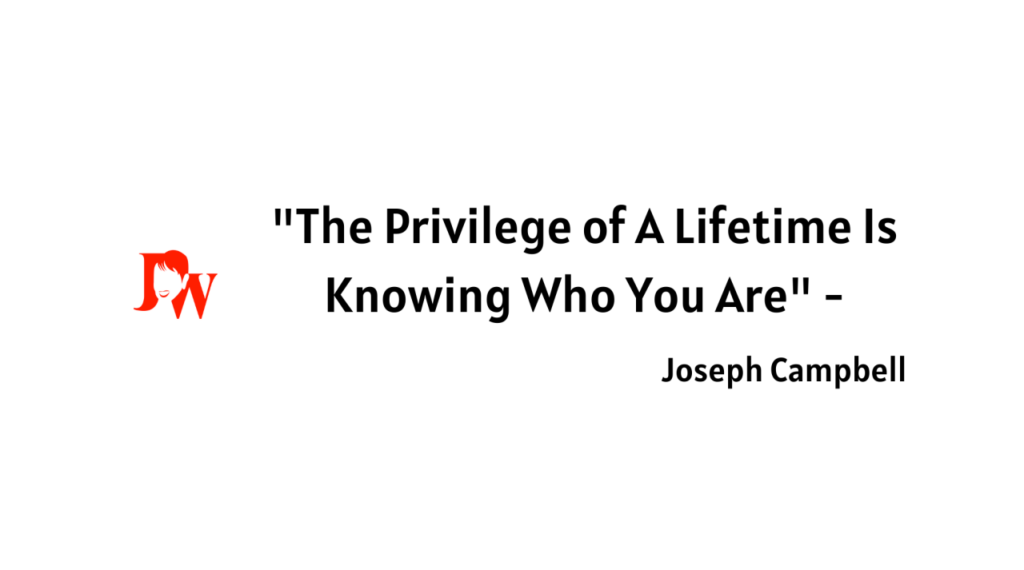I’ve been a people watcher my entire life. I’m endlessly fascinated by behavior and the ways in which people communicate for better or worse. This is my WHY! I love to get inside minds and find out what makes people tick, and how I can help them remove the roadblocks they put in their own way.
As a certified consultant for Human Synergistics behavioral tools, I use these to examine behaviors that are constructive and growth inspired, and behaviors that undermine our ability to perform at our best. Sometimes the client is surprised at the results, and at the same time awakened to the fact that there is work to be done in developing better habits and greater self-awareness.
However, while 95% of people would describe themselves as self-aware, they would be wrong. According to a five-year study by Dr. Tasha Eurich, only 10-15% of the population actually know who they are and what matters to them.
The benefits of self-awareness are significant. When you know who you are and understand your strengths, your weaknesses, and your blind spots, you’re more likely to take actions toward overcoming bad habits that undermine your success.
If we are aware of behaviors that work for us, and what works against our best interests, then we are more likely to want to make the changes we need to make.
In her book Insight, Dr. Tasha Eurich describes four types of self-aware individuals.
- Introspectors. They are clear on who they are, but don’t challenge their own views or search for blind spots by getting feedback from others. This can harm their relationships and limit their success.
- Seekers don’t yet know who they are, what they stand for, or how others see them, but are aware enough to know something must change. As a result, they might feel stuck or frustrated with their performance and relationships.
- Pleasers can be so focused on appearing a certain way to others that they may overlook what really matters to them. Over time they make choices that do not benefit their own success or fulfillment.
- Aware individuals know who they are, and what they want to accomplish, and seek out and value other opinions. This is where leaders begin to fully realize the true benefits of self-awareness.
These definitions are consistent with results I have observed facilitating hundreds of behavioral assessments. In many cases, the underlying emotion in low self-awareness is the nagging feeling that somehow you don’t measure up, not capable, or that you are not good enough.
Consider the following:
- If you are asked to describe yourself in one sentence, could you do so with ease?
- Do you have a clear vision of who you are and what you can do, and are comfortable stating your point of view?
- Do you love interacting with others to bring out the best in them because you’re comfortable being who you are?
- When engaging with others do you notice their emotional state?
- How easy is it for you to open a conversation with a stranger?
- Do you notice when someone has an edge or nervous tone of voice? If so, do you find ways to make them more comfortable without compromising yourself?
How you choose to show up tells you a great deal about your comfort level in being yourself, and how you can easily relate to others.
Many people are oblivious to the effect they have on others. They blindly assert themselves into conversations, speaking over others. They take actions that don’t take account of the other person or refuse to listen. They give the impression they could care less about how you feel because they are centered on their own ego needs. I’m sure you have witnessed this behavior with certain authority figures in your life.
When you live your life unconscious of who you are and the impact you have on others, life has a way of challenging your worldview. We have all had experiences with others that left us feeling diminished, uncertain, fearful, violated, angry, and disappointed. It’s easy to blame, judge, feel worthless and feel victimized.
Let’s look at how self-awareness plays out in the workplace.
We’re all familiar with the picture of a hard-driving, take no-prisoners, results at all costs executives. They don’t care about people’s feelings, and they don’t spend much time thinking about the how the impact of their behavior is undermining performance. These toxic leaders contribute to burnout and an exponential increase in discontented employees. The staggering rate of resignations during the last two years is evidence that something needs to change.
Learning how to understand your thoughts and behaviors is what being self-aware is all about. Knowing who you are, what you bring to the table, and how it affects others is key to being a great leader.
Giving people the opportunity to discover who they are, what matters to them, and encouraging a more humanistic approach to employee relations will go a very long way to the development of self-awareness and encourage meaningful engagement across all dimensions of the organization. When you know who you are, are unafraid to express that, and know what matters to you, and can relate well to others, it opens up a world of greater opportunities.
Building a mindset where the needs of everyone is key to growth is essential to creating organizations that thrive in the 21st century.
Decide to learn the truth of who you are by getting feedback and asking what you can do to make a change in every situation.
The bottom line is simple. You can’t improve as a human being, as a leader without knowing what you need to improve. Be courageous enough to take a deeper look and discover who you can truly become.

